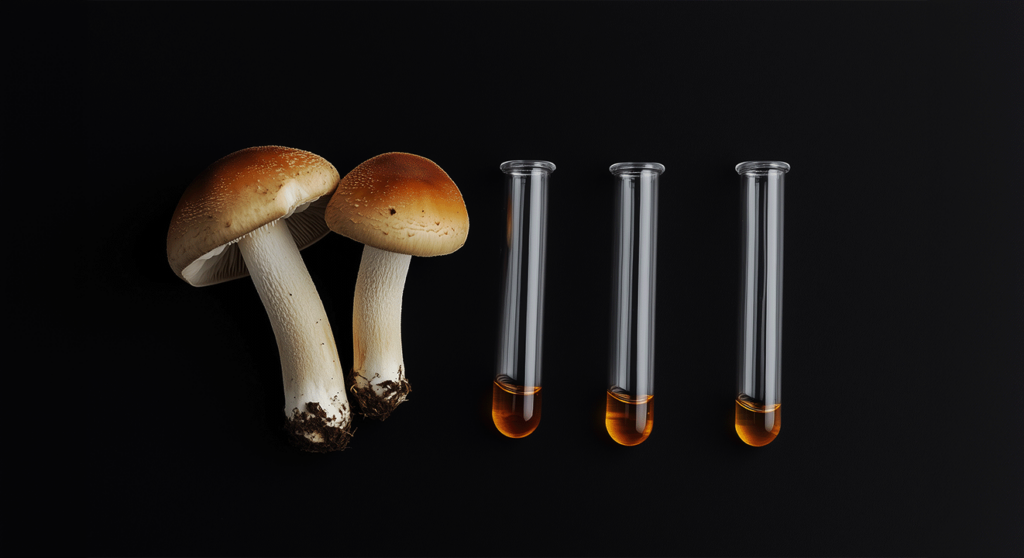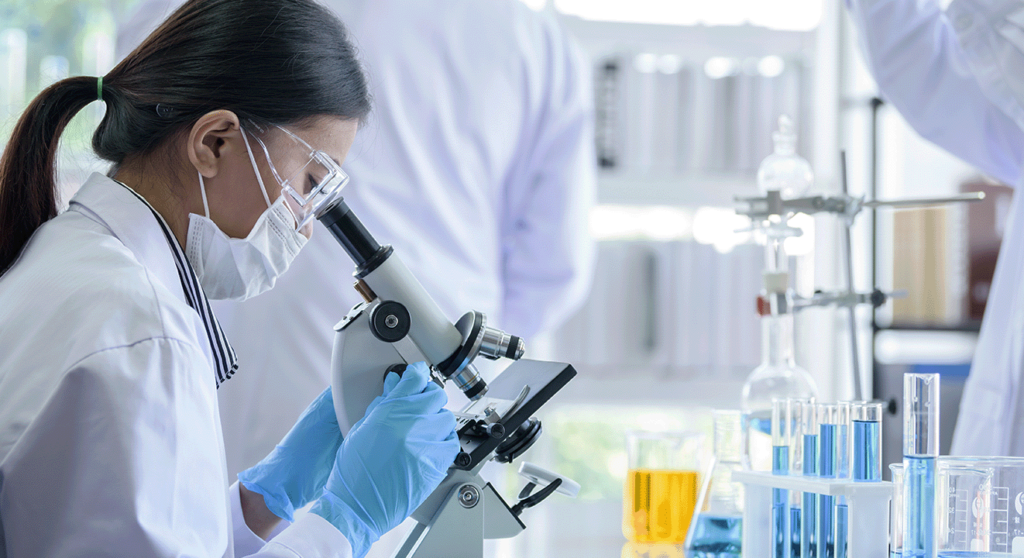Whether you call them shrooms, magic mushrooms, or psilocybin, you’re discussing small mushrooms with big hallucinogenic properties.
Most magic mushroom side effects are transient and involve your mental health. But some problems (like an addiction to shrooms) are significant and last longer.
Need support overcoming mushroom addiction? Get started today.
Key Facts About Side Effects of Using Mushrooms
Key Facts
- About 13% of Americans have used psilocybin at least once.[1]
- Top psilocybin side effects include confusion, distorted thinking, euphoria, and hallucinations.
- Researchers say psilocybin products administered in controlled conditions can help treat psychiatric disorders like depression. But many questions remain about why it’s helpful and how it should be administered.[2]
- Psilocybin can stay in your system (and detectable in your urine) for up to 24 hours.[3]
Mushroom’s Mental Side Effects
Magic mushrooms alter serotonin levels within your brain. That change can alter your perceptions, feelings, and thought patterns. The side effects can be grouped by how long they persist.
Short-Term Side Effects
Common short-term side effects include the following:[2]
Are you or someone you know struggling with addiction?
I may have a problem I am concerned for a loved oneConfusion
Distorted thinking
Euphoria
Fear
Hallucinations
Paranoia
Some people describe entering a fuzzy confused state in which they’re disengaged from reality and aren’t sure who they really are.
People who feel intensely afraid while under the influence call this a bad trip. These episodes are most common in women, and if you use multiple doses of mushrooms in one session, your risk of a bad trip rises.[4]
Long-Term Side Effects
Most people feel sober a few hours after taking magic mushrooms, but long-term problems can appear. Researchers say your emotions and brain functions can be altered for up to a month after your dose.[5]
Some people have flashback episodes weeks, months, or even years after their trip. Each episode lasts for just a few moments, but during that time, you’re plunged back into the scariest parts of your trip. Hallucinogen persisting perception disorder (HPPD) is among the most serious of all psilocybin side effects.
Some people develop an intense fear of flashbacks, and their concerns keep them from enjoying a full and active life.
Since flashbacks are sometimes triggered by stress, you might avoid situations like job interviews or first dates, as you think you’ll feel terrible in front of strangers. Some people frighten their children or harm others while they’re in the middle of a flashback they can’t control.
| Short-Term Mental Health Symptoms | Long-Term Mental Health Symptoms |
|---|---|
| Bad trips | Hallucinogen persisting perception disorder |
| Hallucinations | Fear of flashbacks |
| Euphoria | Anxiety |
| Confusion | Avoidance of situations that might trigger flashbacks |
| Paranoia | Poor sleep |
Mushroom’s Physical Side Effects
The serotonin system targeted by mushrooms also regulates your cardiovascular function, bowel health, and bladder control, among other core functions. You may have taken mushrooms to change your mind, but you could end up changing your body.
Short-Term Side Effects
When you take mushrooms, you may experience side effects, such as these:[2]
Dizziness
Drowsiness
Headache
Lack of coordination
Nausea
Weak muscles
Vomiting
These physical changes can be frightening, and your mental state is already changed due to mushroom use. You can begin a cycle where your body feels ill, your mind overreacts, you feel sicker, and you overreact even more.
It’s incredibly rare to overdose on mushrooms, but you can grow so concerned about your health that you land in the hospital.
Long-Term Physical Health Impact
Your cardiovascular system gets a workout during a mushroom episode. Your heart races, and your blood pressure rises to dangerous levels.
The more you use mushrooms, the more heart damage you cause. You could develop heart disease in time.
| Short-Term Physical Side Effects | Long-Term Physical Side Effects |
|---|---|
| Nausea | Periodic high blood pressure readings |
| Drowsiness | Blood vessel damage |
| Headache | Heart disease |
If you or someone you love has a shroom or hallucinogen addiction, we’re here to help. We have treatment centers around the country to help overcome your substance use problem.
Medical Uses for Psilocybin
Limited research suggests that psilocybin can be an effective therapy for mental health conditions, but doctors aren’t sure how much to use to help their patients. Since the drug is illegal in many states, getting it can be difficult.[6]
Psilocybin shows promise in treating the following conditions:
- Depression
- Nicotine addiction
- Alcohol addiction
- Alzheimer’s disease
- Anorexia
- PTSD
- Emotional distress caused by cancer
Researchers aren’t sure why mushrooms help these conditions. It’s possible that altering serotonin levels triggers reactions throughout the brain that ease mental distress and improve focus. Some believe mushrooms can alter a person’s personality and consciousness permanently, allowing for a more relaxed life.
Studies on psilocybin’s efficacy usually involve giving doses in controlled environments. Doctors often pair the medication with therapy.[2] You can’t get the same results by buying mushrooms from dealers and taking them at home. You need doses that are carefully prescribed by a doctor in conjunction with appropriate therapy and monitoring.
If psilocybin products can be helpful, and doctors determine how to use them properly, they could be an important part of treatment for many people. It’s too soon to really know at this point.
Mushroom Drug Interactions
Some people experience side effects because they mix their mushrooms with other substances. Any drug that works on your serotonin system could interact negatively with mushrooms.
The following drugs could interact with mushrooms:
- Stimulants: Stimulants can increase energy levels and anxiety. Your mushroom experience could be unpleasant or scary as a result.
- Opioids: Opioids slow reaction times and cause sedation. Mushrooms can be sedating too.
- Alcohol: Alcohol can lower your inhibitions. Urges caused by mushrooms might be harder to control, and you could enter dangerous situations.
- Benzodiazepines: Benzodiazepines can also work on your serotonin system, causing cardiac damage.
- Marijuana: Marijuana also causes hallucinations, strengthening those you experience from mushrooms.
Effects of Mushroom Use in Teens
Brain cells are creating new connections during adolescence. It’s a critical time for growth, and the work done could influence how the brain works for the rest of a child’s life. Adding mushrooms to the mix could be dangerous.
While few people go to the hospital for magic mushroom intoxication, those who do are typically young.[7] Researchers say teens using mushrooms can enter the emergency room with symptoms such as these:[7]
- Anxiety or panic
- Paranoia or suspiciousness
- Unconsciousness
- Difficulty breathing
- Fits or seizures
- Palpitations
- Chest pain
Researchers have conducted few studies on mushroom side effects in teenagers.[8] But based on available research, these substances are too dangerous for teens.
“Although most people reporting challenging psychedelic experiences also cite resulting therapeutic value and benefits to their well-being, they can also be traumatizing and lead to psychological distress especially when negative aspects dominate the trip and where there is no adequate support during and after the experience.”[7]
Frequently Asked Questions About the Side Effects of Shrooms
We’ve compiled some of the most frequently asked questions about psilocybin side effects.
Psilocybin is not considered a classically addictive drug. But some people become psychologically addicted to the changes mushrooms can cause, and they have a hard time quitting.
No. It’s not safe to use another drug, including alcohol, while using mushrooms.
Psilocybin is a classic hallucinogenic drug. You’ll feel an altered sense of space and time while using it.
Psilocybin can stay in your system (and detectable in your urine) for up to 24 hours.[3]


How Long Do Shrooms Stay in Your System? + Detox Fast
- Orth, T. One in four Americans say they’ve tried at least one psychedelic drug. YouGov. Published July 28, 2022. Accessed June 21, 2023.
- Psilocybin and mental health: The magic in mushrooms. American Society for Microbiology. Published February 10, 2023. Accessed June 21, 2023.
- Psilocybin. Editor(s): J.K. Aronson, Meyler's Side Effects of Drugs (Sixteenth Edition), Elsevier, 2016, Pages 1048-1051, ISBN 9780444537164,
- Bienemann B, Ruschel NS, Campos ML, Negreiros MA, Mograbi DC. Self-reported negative outcomes of psilocybin users: A quantitative textual analysis. PLoS One. 2020;15(2):e0229067. Published 2020 Feb 21.
- Barrett, F.S., Doss, M.K., Sepeda, N.D. et al. Emotions and brain function are altered up to one month after a single high dose of psilocybin. Sci Rep 10, 2214 (2020).
- MacCallum CA, Lo LA, Pistawka CA, Deol JK. Therapeutic use of psilocybin: Practical considerations for dosing and administration. Front Psychiatry. 2022;13:1040217. Published 2022 Dec 1.
- Kopra EI, Ferris JA, Winstock AR, Young AH, Rucker JJ. Adverse experiences resulting in emergency medical treatment seeking following the use of magic mushrooms. J Psychopharmacol. 2022;36(8):965-973.
- M.L. Shawn Bates, Keith A. Trujillo. Use and abuse of dissociative and psychedelic drugs in adolescence. Pharmacology Biochemistry and Behavior. Volume 203, 2021, 173129. ISSN 0091-3057











